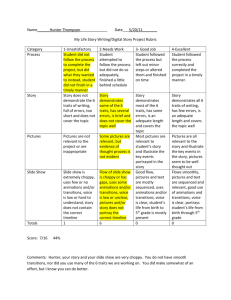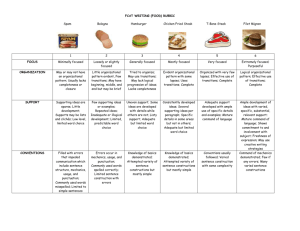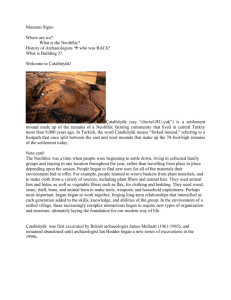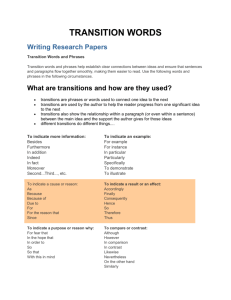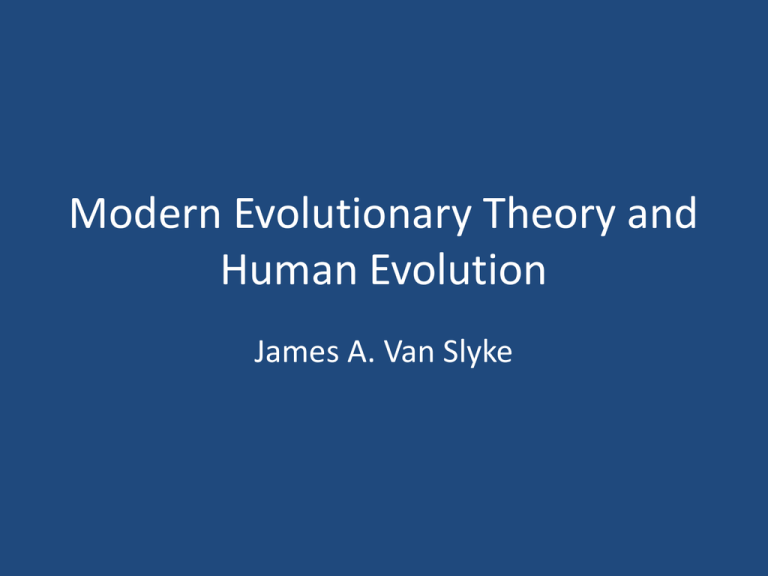
Modern Evolutionary Theory and
Human Evolution
James A. Van Slyke
Modern Synthesis
• Darwinian Evolution
– Descent with modification from a common
ancestor
– Small changes gradually occur over time
– Natural Selection – different traits promote
survival or lead to extinction
– Sexual Selection – traits that promote or diminish
reproduction
Modern Synthesis
Modern Synthesis
• Genetic Theory
– Mechanism that transfers traits to offspring
– Missing piece of Darwin’s Theory
• Genotype – set of gene’s from individual DNA
• Phenotype – Observed characteristics
produced by a genotype
Modern Synthesis
• Genetic Variation
– Mutations – changes in DNA sequence
– Gene Flow – movement of genes between
populations
– Sex – introduce new gene combinations
• Genetic Variation produces phenotypic
variations
• Phenotypes with adaptive value increase
survival and reproduction
• Adaptive value passed on through genotypes
Human Evolution
• Humans and chimpanzees share 98.5% of the
same genes
• Hominid lineage split from chimpanzee about
6 million years ago
• Homo sapiens – 200,000 years ago from Africa
• Many important transitions in human
behavior and cognition
Primate Evolutionary Tree
Important transitions
• Burial of the Dead
– 95,000 years ago
– Buried with beads and other symbolic objects
– May have religious significance; belief in life after
death
– Burial site in Israel
• 30 buried individuals found
• 9 year old found with a pair of antlers
Important Transitions
• Use of pigments and coloring
– 350,000 years ago
– Marked persons and objects with color
• Cave painting and Drawing
– 32,000 years ago
– Early forms of symbolic thought
Important Transitions
• Cave painting and Drawing
– 32,000 years ago
Important transitions
• Figurines and carvings
– May have religious significance for different
rituals
– Early forms of symbolic thought in
combining animal with human forms
– May also have sexual significance in carvings
of the female form
Lion-head figure
Venus figure
Important transitions
• First religious temple
– 11,000 years ago
– Turkey
– Rows of standing stones
– Images of animals
– “Gobekli Tepe”
Important transitions
• Çatalhöyük (http://www.catalhoyuk.com/)
– 7500 BC
– Feasts with animals
– Burials of ancestors
– Religion and daily life highly integrated
– Religion could not be separated from other
aspects of culture
Çatalhöyük
Çatalhöyük


